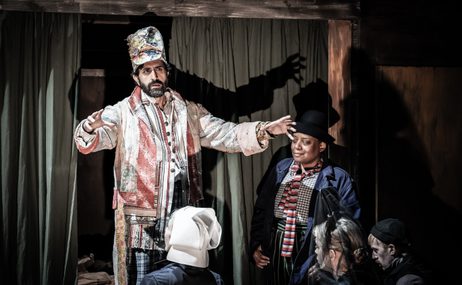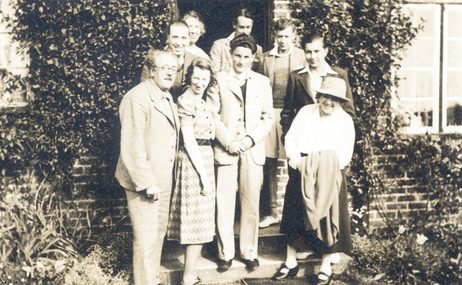Presented by Colin Matthews
Britten’s final quartet comes from his ‘late’ period: the astonishing surge of creativity he experienced between his heart surgery in 1973 and his death in 1976. After his operation Britten was unable to take on large-scale projects, such as operas, and each work is thus on a smaller scale – song cycles, works for chamber orchestra, choral pieces, and the third quartet. As Colin Matthews relates in this week’s film, Britten had not composed a string quartet in 30 years: his second was composed way back in 1945, shortly after his first opera Peter Grimes. No. 3 was written with his final opera Death in Venice very much in mind: the last movement explicitly references themes from the opera, and Britten had visited Venice during the work’s composition in order to gain inspiration from its sounds and unique atmosphere.
Britten worked on the piece with the Amadeus Quartet – who were to give the premiere – in late September 1976. But the first performance turned out to be posthumous as Britten died a fortnight before it took place, on 19 December 1976. It must have been an extraordinarily moving experience for those involved, on stage and in the audience, so soon after its creator’s death. Peter Evans, in a review of the piece, noted the relationship between the quartet and Death in Venice, writing: ‘whether we hear this music as new light on Aschenbach’s [the main character of Death in Venice] fate or, still more poignantly, as comment on the composer’s own, we shall find a rare aptness in the powerful upsurge of the creative imagination which shaped the quartet’s closing passionate sigh.’
Watch more

74th Aldeburgh Festival
09 – 25 June 2023
A Song at The Red House: 'Tell me the Truth About Love', by Benjamin Britten
Soprano Elise Caluwaerts performs one of Britten's cabaret songs, with a witty text by WH Auden. Accompanied by Lucy Walker on Britten's Steinway piano…
Work of the Week 24. Violin Concerto
Presented by Roger Wright
